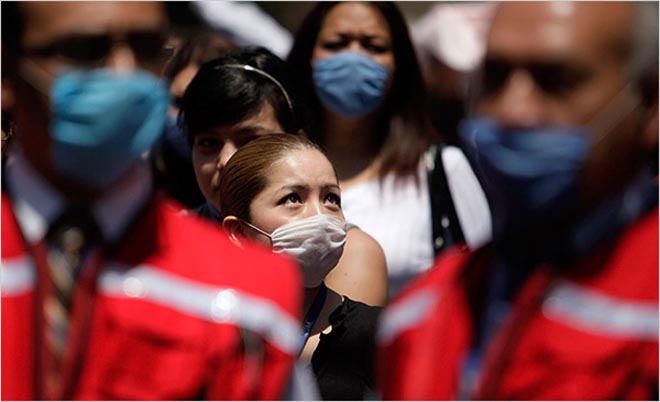The pandemic H1N1 flu virus continues to cause widespread infection in many parts of the world but is not becoming more serious, the World Health Organization (WHO) said on Friday, Reuters reported.
The WHO said it had counted 2,837 deaths worldwide but noted that not every case was being counted any more.
The United Nations agency is closely monitoring the strain, commonly known as swine flu, but said it had not detected any mutation which might signal that it has become more deadly.
"It is not causing more severe illness than before, there have been no changes in the behavior of the virus," WHO spokesman Gregory Hartl told a news briefing.
"We are continuing to see increased number of deaths because we are seeing many, many more cases."
About a quarter of a million cases have been laboratory-confirmed worldwide, but this is far fewer than the true number according to the WHO which has stopped requiring its 193 member states to report individual cases.
Its previous update of August 28 showed at least 2,185 deaths, meaning an additional 652 deaths were reported in the past week.
The virus could eventually infect 2 billion people, or a third of the world's population, according to WHO estimates.
Every year, seasonal influenza kills between 250,000 and 500,000 people globally, it says. But H1N1 is causing a year-round flu season and may infect more people than a usual seasonal virus, potentially adding up to more deaths.
"In the best case scenario we have today, we will still have a moderate virus that is projected to cause several million deaths," Dr. Tammam Aloudat, senior health officer at the International Federation of Red Cross and Red Crescent Societies, told a separate news briefing.
"Which means that even in the best case scenario, we do have an emergency on our hands, an emergency of a scale different from what we have seen before in the modern era," he said.
The Federation, the world's largest disaster relief network, on Friday launched an information campaign to help the poorest communities reduce infection through simple hygiene measures.
H1N1, declared a pandemic on June 11, causes many mild symptoms, but has killed more people with medical conditions, such as asthma, or pregnant women, who should be treated with the antiviral Tamiflu by Roche Holding AG, WHO says.
PREDOMINANT VIRUS
Tropical regions of many countries in South and Southeast Asia are reporting "increasing or sustained high levels of respiratory disease," although Thailand has reported a declining trend, according to the WHO's latest weekly update.
H1N1 has killed 2,837, but not more serious: WHO
The pandemic H1N1 flu virus continues to cause widespread infection in many parts of the world but is not becoming more serious, the World Health Organization (WHO) said on Friday.






